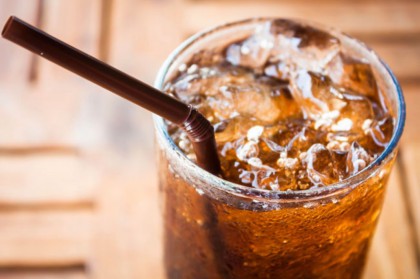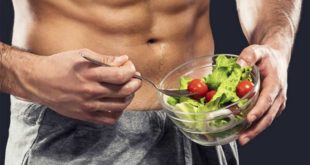
A new study examining the health and nutrition habits of more than 22,000 adults in the US, found that diet drink consumers may compensate for the drinks’ zero calorie count by reaching for foods that are laden with sugar, salt, fat and cholesterol. So, even if you thought making the switch would do yourself (and your waistline) a favour, you’re probably more likely to make up for it in the calorie bank later.
Dr. Ruopeng An, a professor of kinesiology and community health at the University of Illinois at Urbana-Champaign, examined 10 years of data from the National Health and Nutrition Examination Survey, which asked participants to recall everything they ate or drank over two days.
An looked at the daily calorie intakes, as well as making comparisons between those who consumed diet or sugar-free drinks to the individuals who drank other beverages such as sugar-sweetened beverages,coffee, tea and alcohol. And what was found is that over 90 per cent of the individuals were consuming discretionary foods— items that don’t belong to any major food group and are not required by the human body like chocolate, cookies and fries — which added up to about 482 calories each day.
The study chose to focus on the nutritional quality of the food people consumed rather than the time of day it was eaten. Results indicated 53 per cent of participants drank coffee, followed by sugar-sweetened drinks (43 per cent), tea (26 per cent), alcohol (22 per cent), and then diet drinks (21 per cent). An found that the people who drank alcohol had the largest increase in daily calorie intake at 382 calories, which kind of makes sense when you think of those post-drink munchies, doesn’t it?
Sugar-sweetened beverages followed (226 calories), then coffee (108 calories), diet beverages (69 calories) and tea (64 calories). Even though coffee and diet drinkers consumed fewer total calories daily, they did make up for it by obtaining a greater percentage of their daily calorie intake from those discretionary foods. An suggests this could be a possible compensation effect.
“It may be that people who consume diet beverages feel justified in eating more, so they reach for a muffin or a bag of chips,” said An. “Or perhaps, in order to feel satisfied, they feel compelled to eat more of these high-calorie foods.”
An also explained people might choose to drink diet drinks because they often feel guilty about indulging in unhealthy food.
“It may be one — or a mix of — these mechanisms,” An said. “We don’t know which way the compensation effect goes.”
An pointed out that if your reason behind drinking diet drinks is to help with weight control this might not work if you’re not careful with the other foods you’re noshing on throughout the day. To put it simply, those calories you’ve saved in a diet drink might just be eaten instead.
An’s recommendation is to document your calorie intake from both beverages and discretionary foods, because both of these add calories and could potentially lead to unwanted weight gain.
Source: bodyandSoul
 We are sharing information for knowledge. Presented by. SocialDiary.Net
We are sharing information for knowledge. Presented by. SocialDiary.Net



